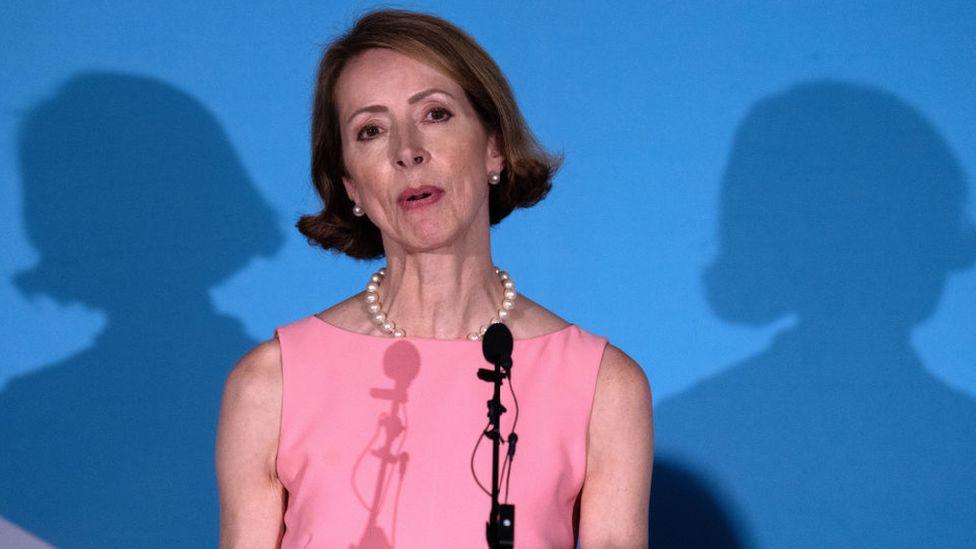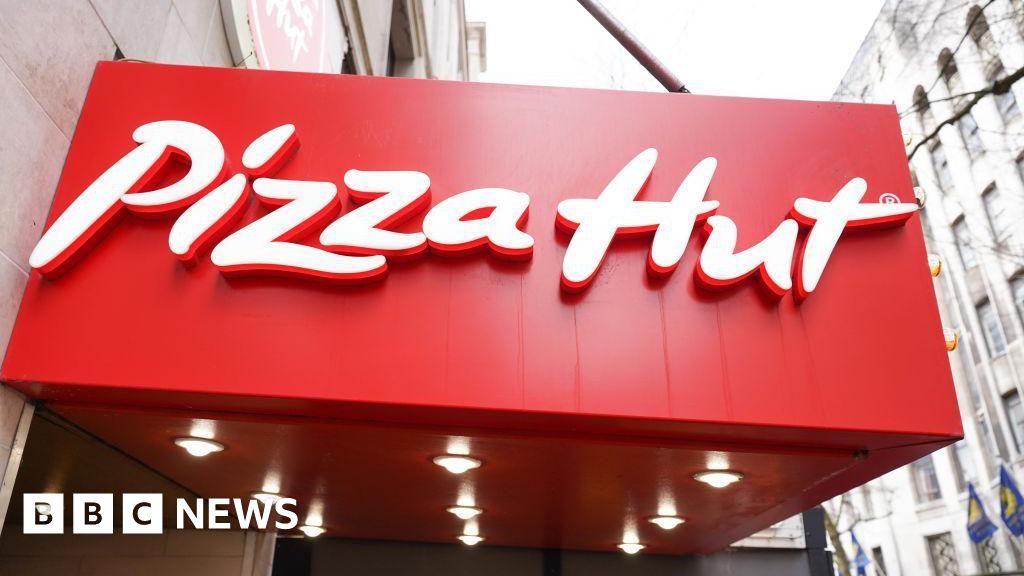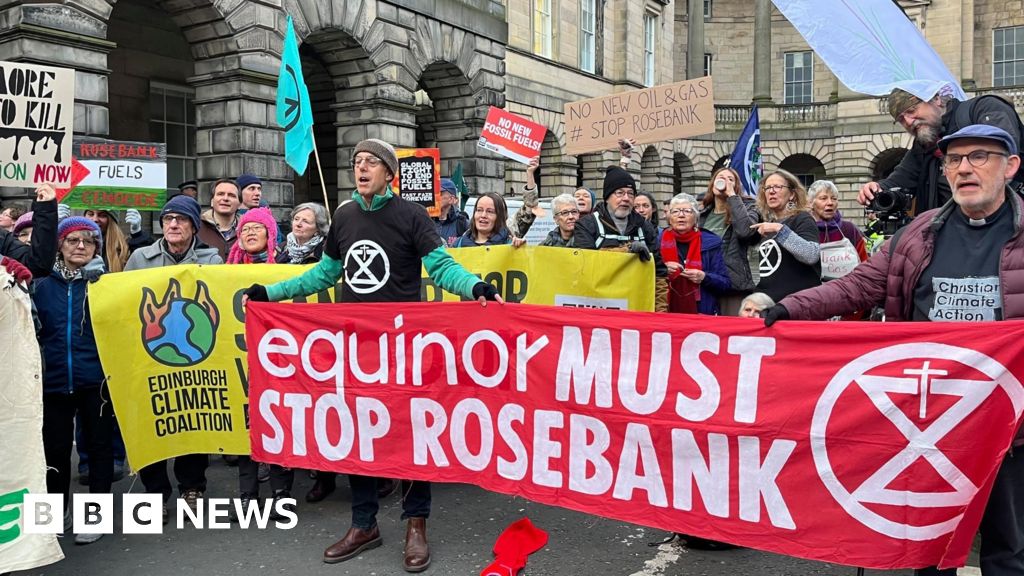ARTICLE AD BOX
 Image source, Getty Images
Image source, Getty Images
Baroness Morrissey said one or two badly behaved individuals can "capsize" an organisation
By Dearbail Jordan
Business reporter, BBC News
Baroness Morrissey has said an apology by the CBI for failing to fire people who sexually harassed female colleagues is "too little, too late".
The diversity campaigner and financier said she felt the lobby giant was finished and criticised firms who have yet to publicly cut ties with the CBI.
The CBI apologised following a report from an independent law firm into misconduct allegations including rape.
It admitted it had hired "toxic" staff and failed to fire "offenders".
CBI president Brian McBride said it was taking steps to regain members' trust.
But Baroness Morrissey told the BBC's Today programme: "I'm afraid they've left it too little too late and I think that losing trust is so quick and easy to do and then regaining it is so difficult."
The CBI - one of the UK's most prominent lobby groups which claims to speak for 190,000 businesses - has been engulfed in crisis since the Guardian published claims of workplace misconduct, harassment and serious sexual assault including two allegations of rape.
The City of London Police is investigating both allegations of rape.
In a letter to members, Mr McBride admitted that it had failed to sack people who sexually harassed female employees. He said this had allowed a "very small minority of staff" to feel "more assured in their behaviour, and more confident of not being detected".
However, Baroness Morrissey said: "You only need one or two people behaving very badly, as we can see at the CBI, to capsize the whole thing."
Speaking to the BBC on Monday, Mr McBride said that the CBI would now be adopting a "zero tolerance culture".
But Andy Wood, chief executive of brewing company Adnams, said that zero tolerance of bullying and sexual harassment "has to be a given in a modern organisation".
"It just shows really how archaic the CBI was behind the scenes," he said.
Adnams is one of a number major businesses, including John Lewis, who have ended their membership of the CBI. Other firms have said they are "pausing" their engagement with the lobby group while many more are yet to comment on their standing with the organisation.
Baroness Morrissey, who campaigns for female inclusion within company management, said: "I don't quite understand why people don't come out and say: 'We're going to join those who have decided to leave and we'll work out what we're going to do in replacement of the CBI', because I feel they will be on the wrong side of history."
Asked whether she thought the CBI as an organisation is finished, she said yes.
But Michael Plaut, the former chairman of CBI Wales, said: "I just think nobody gains if we simply cancel the CBI. Letting the CBI die is really easy.
"I think we just need, as members, to get our hands dirty and rebuild this organisation, build it so it's kind of a model organisation for the 21st Century."
The CBI employs around 300 people and as well as having offices across the UK, has overseas sites in Washington DC, Brussels, India and China.
Baroness Lane-Fox, president of the British Chambers of Commerce, said: "Who couldn't have massive empathy for the poor people that are working in the CBI right now? It has been an absolute roller-coaster."

 1 year ago
31
1 year ago
31








 English (US)
English (US)